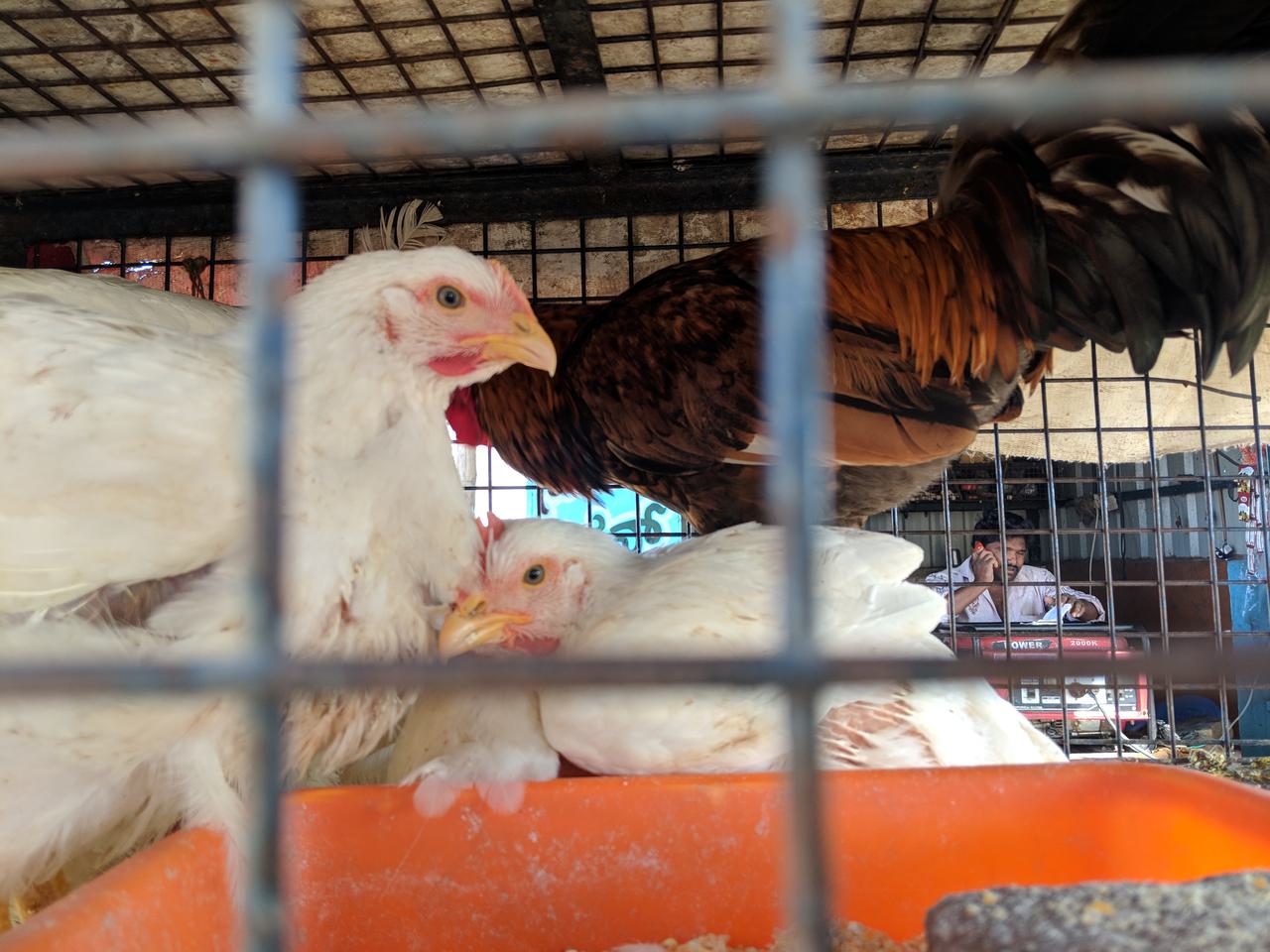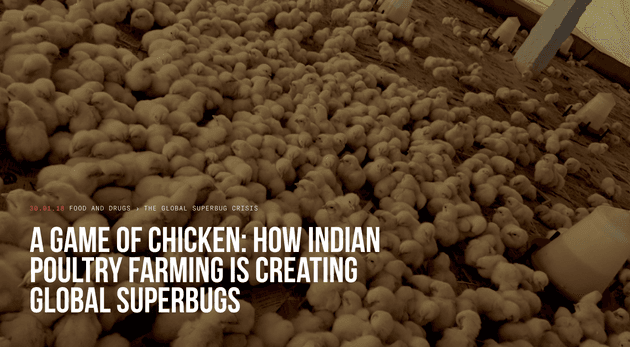
India set to ban use of “last hope” antibiotic to fatten livestock after Bureau story
The Indian government is set to ban the “last hope” antibiotic colistin from being used to make livestock grow faster, in an effort to tackle the rise of superbugs.
Colistin has been used for years on farm animals despite being one of the most important drugs in human medicine. It is known as the “last resort” drug as it is given to patients seriously ill with infections which have become resistant to most other antibiotics.
When given to livestock in small doses every day it makes the animals grow faster - a practice which ends up breeding colistin-resistant bacteria which can then infect humans.
The use of antibiotics to artificially fatten up animals (known as growth promotion) is a major driver of the world's growing antibiotic resistance crisis and as such the World Health Organisation says such usage should be banned.
The European Union, China, Brazil and the US have all banned the use of colistin as a growth promoter because of the superbug threat, but the practice had continued in India, as highlighted in a series of stories by the Bureau last year.
Now it looks like the Indian government may follow suit and ban colistin used to fatten animals following recommendations from expert panels.
The National Antimicrobial Resistance Action Plan committee has recommended a ban. “We have evidence that the colistin used as growth promoter in poultry is making a significant contribution to the colistin resistance in humans," said Dr Abdul Ghafur, who advises the committee. "To my knowledge Indian government is working on a rule and hopefully it will come out in the immediate future. We are in the final process of the rule.”
India’s top drug advisory body, the Drugs Technical Advisory Board, also separately recommended a ban on the use of colistin in its meeting on 29th November, Livemint reports. The Bureau contacted the board to verify this information but received no response.
An investigation by the Bureau last year showed how colistin was widely used as a growth promoter in India. Hundreds of tonnes of colistin were shipped to India in 2016, we found, and the drug was sold by a number of international and domestic pharmaceutical companies without requiring a prescription.
The story showed how one of India’s largest poultry companies, Venky’s, which owns Blackburn Rovers football club in the UK, was marketing colistin as a growth promoter to farmers. In India Venky’s supplies supermarkets and fast food outlets like KFC, McDonalds and Pizza Hut. The fast food brands said no growth promoting antibiotics were used in chickens supplied to them.
 The Indian government's proposed ban comes after a Bureau story which revealed colistin is widely marketed to Indian farmers as a growth promoter and sold without a prescription
The Indian government's proposed ban comes after a Bureau story which revealed colistin is widely marketed to Indian farmers as a growth promoter and sold without a prescription
In August 2018 the Bureau was able to buy 200g of Venky’s brand colistin without a prescription in a drug shop in Jaipur, though the words growth promotion had been removed from the label.
In July, the Bombay High Court in Mumbai ordered veterinary drug stores across the state to stop selling antibiotics for use on livestock unless the farmer has a prescription. The lawyer who launched the legal bid to restrict the drug's sales did so after reading our investigation and used our story and background information as evidence.
Dr Ghafur thanked the Bureau for its work. “We provided the evidence and the government are convinced," he said. "The Bureau of Investigative Journalism has helped by increasing awareness. When this ban comes out it will be because of everybody’s work.”
Superbugs are estimated to kill 10m people by 2050 if no global action is taken. India is often dubbed the epicentre of the antibiotic resistance crisis because a “perfect storm” of factors have lead to soaring rates of superbugs, which then spread around the world.
Professor Timothy Walsh, a UN advisor on superbugs who discovered a gene known as mcr-1 which gives bacteria the power to gain resistance to drugs, urged the Indian government to pass the law banning colistin.
“In a country where colistin is a common life-saving last-resort medicine, the mere notion that colistin is used in poultry production should be viewed as criminal negligence followed by prosecution," he said. “What is required is a total and unequivocal world-wide ban on colistin use in animals.”


